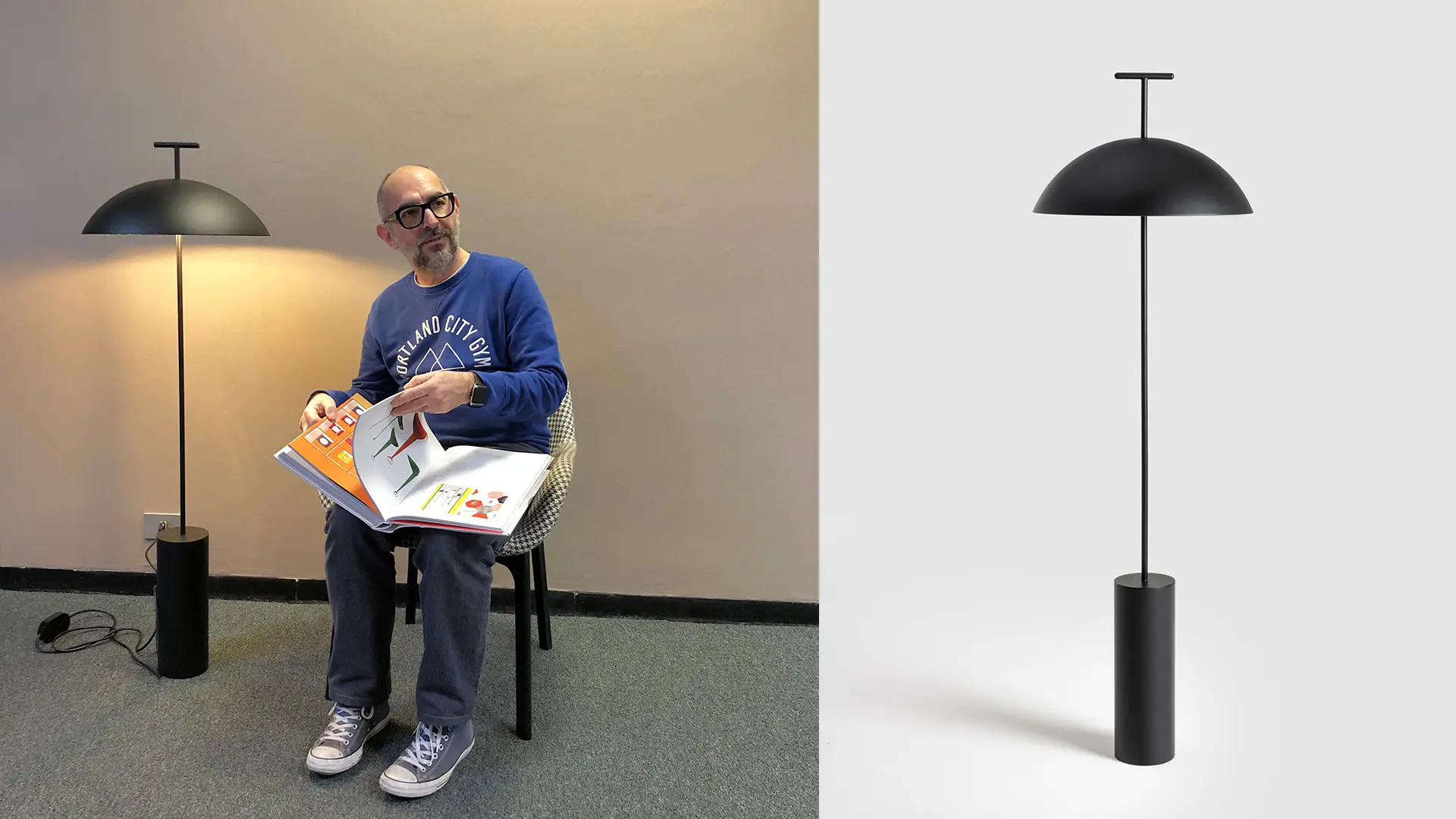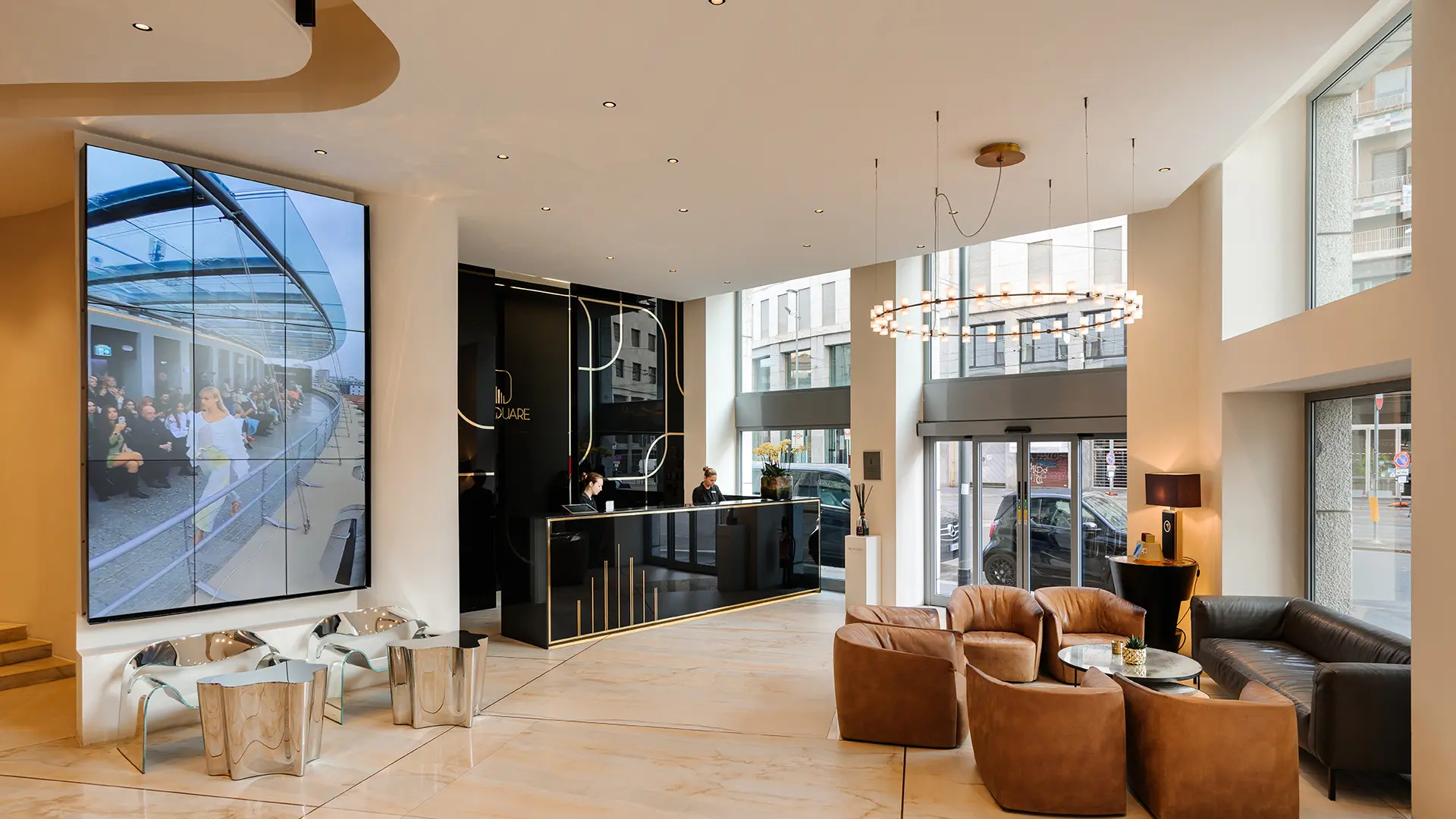Traceability, welfare, circularity, as well as art and culture: Arper, De Castelli, Florim, Flos and Pedrali present their points of view

A lamp that channels the pleasure of reading. Light-hearted, essential, almost poetic. Dedicated to his mother. A “no frills” project that goes right to the point and straight to the heart.
Geen-A is a minimalist reading lamp, its shape extremely recognisable yet unobtrusive, a nomadic object always within reach.
I was explicitly asked to design a reading lamp, and so what I didn’t want to do was get into technicalities or fall back on modern revisions of retro lamps; the result was a simple, decisive clean shape with a character and identity of its own, something contemporary and easy, both in terms of placement and in terms of light source, which is why I went back to using dear old light bulbs (LED naturally).
In this particular case, and given its precise remit, the ergonomic and lighting technique aspects were crucial to reproportioning the creative concept and make it concrete. The lamp is produced using simple powder-coated metal and a weight to stop it falling over because of the small size of the base; this allowed us to avoid complicated moulds that would have pushed up the retail cost, thus making it more attractive to a broader market.
Despite its simplicity, Geen-A took almost a year and a half to complete and go on sale. One gets fond of one’s own projects, rather as we become fond of people, and the same is even more true of this lamp which carries the nickname I and my family gave my mother.
I’m not exactly sure where, but I hope all over the world, what’s certain is that it will always be accompanied by a book, and that already makes me happy.

10 must-see design and architecture exhibitions of 2026
From new interpretations of masters of the 20th century like Antoni Gaudí and Verner Panton, to radical research on living materials, to poignant reflections on the climate – especially in the runup to the Winter Olympics – as well as on our longing for objects, on sound, on the spaces we live in... here is a selection of exhibitions you cannot afford to miss, to keep your curiosity alive and your creative muscles in top shape



 Stories
Stories






